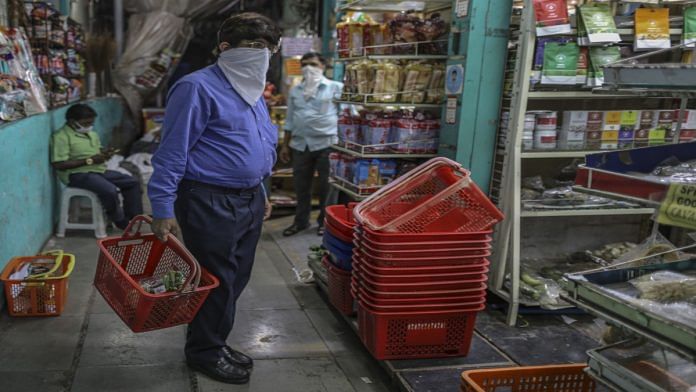Elderly people and those with pre-existing medical conditions are the two groups often said to be the most vulnerable to the deadly Covid-19 disease. However, there’s one group that we haven’t paid enough attention to — men.
As of Tuesday, 76 per cent of the total confirmed coronavirus cases in India were men
and 24 per cent women. It’s a similar proportion with the number of deaths, said the
ministry of health and family welfare. This means Indian men are more likely to test
positive, have a severe infection and die from the disease.
Risky gender roles
It’s a global trend that has emerged in China, France, Germany, Iran, Italy, and Spain. Even in South Korea, where the proportion of women who tested positive for the coronavirus is higher than that of men, about 54 per cent of the deaths were among men. And it’s not just coronavirus. Even with SARS, MERS and lung diseases in general, men have it worse.
And yet, these stark statistics have only made a small splash in the mainstream news.
In India, men are being viewed along with the rest of the population, rather than on a par with the elderly or other vulnerable groups. Even under the lockdown, due to the established gender roles, men are still more likely to venture out of the house to buy groceries and supplies for the rest of the family.
As found in a 2002 WHO study, “women’s vulnerability to the impact of disasters is increased by socially determined differences in roles and responsibilities of women and men and inequalities between them in access to resources and decision-making power”. For instance, more women died when an earthquake hit Maharashtra, as men were outside but women were confined to homes. However, in the case of coronavirus, men are more vulnerable.
With more and more families cooped up at home, gender norms are back with a bang. In India, the masculine “breadwinner” norm is linked with the commonly held bias among Indian households for a male child. A man is meant to protect the family and provide for it even when, statistically, it would appear that he is the one who requires protecting.
Also Read: Covid-19 will worsen women’s health, income inequality
Lack of data
One reason why male vulnerability to the novel coronavirus is being swept under the rug is because there isn’t enough sex-aggregated data to explain why this trend is happening in the first place. So far, there’s the hypothesis that says males are more likely to smoke, drink and engage in unhealthy habits, which puts their immune systems at a disadvantage. Now, that’s a theory that isn’t going to warrant much empathy among men as it assumes men have brought the disease onto themselves.
Next is the biological theory that the hormone estrogen in women has some protective element that helps them in thwarting the virus infection. While this argument satisfactorily puts to sleep bigoted statements that “women are the weaker sex”, it doesn’t tell us specifically what’s in estrogen that protects them. Once again, we are at a loss.
We are yet to understand the reasons why Covid-19 discriminates against men, just like it attacks the elderly and people with underlying illnesses but all these groups need to be viewed with equal concern. We can’t let cookie-cutter gender norms inhibit us from acknowledging that in the battle against coronavirus, men just might be the weaker sex and we need to keep an eye on them.
Either men pass the leadership baton onto another family member or families consciously alter their gender dynamics. How else are we supposed to fight an invisible enemy if we don’t acknowledge our weakest links?
Views are personal.



